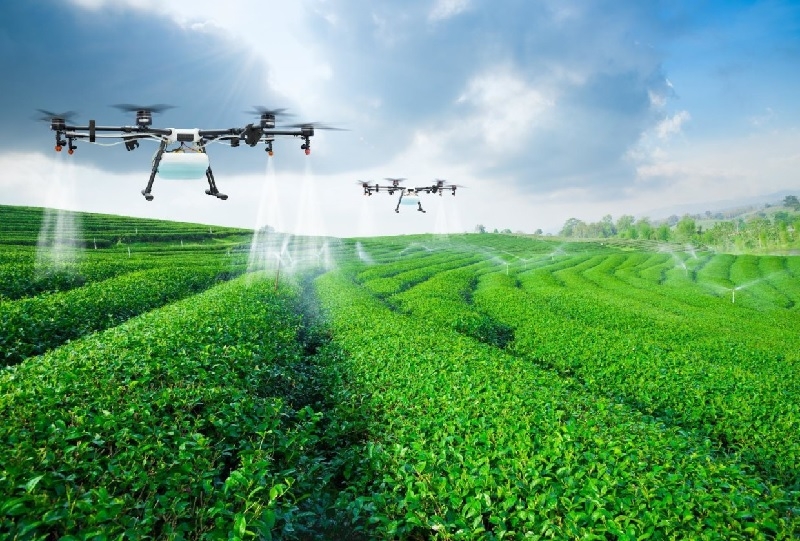Modern Farming Methods in India: Farming in India has evolved with modern methods that improve productivity, lower costs, and ensure food security. Technological advancements have played a crucial role in the transformation of Indian agriculture, making it a leader in sustainable farming practices. This article explores the top four modern farming methods in India, their benefits, and their contribution to feeding the growing population.

1.The Green Revolution
Enhancing Food Production The Green Revolution, which took place in the 1960s, marked a significant development in Indian agriculture. Farmers adopted improved farming techniques, including the use of special crops and fertilizers, to meet the rising food demands of the population. The success of the Green Revolution led to increased food production, making India one of the top food-growing countries globally.
2.Technological Advancements Driving Modern Farming
Modern farming heavily relies on new technologies to optimize agricultural practices. Farmers are utilizing drones to monitor crops, capturing aerial photographs to identify issues such as pest infestations and water requirements. Precision farming, another emerging technique, employs advanced sensors and data analysis to assess crop health, enabling farmers to optimize water and chemical usage, resulting in cost savings and environmental benefits.
3. Sustainable Agriculture Practices
Preserving the Environment Sustainable farming practices aim to reduce climate change impacts and ensure the long-term viability of farms. Crop rotation is a key approach in sustainable agriculture, where different crops are planted annually to maintain soil health and control pests and diseases. Farmers are also shifting from chemical fertilizers to natural alternatives, promoting soil health and minimizing water contamination. Conservation tillage, leaving crop residue on the land instead of plowing it under, helps preserve soil and reduces fuel consumption.
4. Organic Farming
Nurturing Health and the Environment Organic farming is gaining popularity in India as farmers recognize its benefits. It involves growing crops without the use of synthetic chemicals and pesticides, relying on natural fertilizers and compost, and employing crop rotation to manage pests naturally. Organic farming benefits the environment by reducing chemical use, preserving soil quality, and producing healthier and safer food for consumers.
Conclusion
Modern farming methods in India have revolutionized the agricultural sector, enabling farmers to tackle the challenges of increasing food demand, erratic weather patterns, and resource scarcity. Through technological advancements, sustainable practices, and organic farming, Indian farmers are securing their livelihoods, contributing to food security, and promoting environmental sustainability. The continuous adaptation to modern farming techniques is essential for a better future, ensuring the availability of nutritious food for all.


